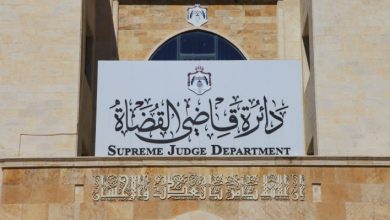Director, Evaluation D2

.
WFP celebrates and embraces diversity. It is committed to the principle of equal employment opportunity for all its employees and encourages qualified candidates to apply irrespective of race, colour, national origin, ethnic or social background, genetic information, gender, gender identity and/or expression, sexual orientation, religion or belief, HIV status or disability.
Are you a leader in Evaluation interested in further developing your professional experience while contributing to ending global hunger? Are you passionate about helping those in need? Would you like to join a global organization investing in its people?
If so, an exciting & fulfilling career awaits you! Join our diverse and passionate team that works on varied and international projects directly contributing to saving & changing millions of lives around the globe.
WHO WE ARE
The United Nations World Food Programme (WFP), a highly prestigious, reputable & world’s largest humanitarian organization, operating in more than 120 countries and territories, bringing life-saving assistance in emergencies, building pathways to peace, stability and prosperity for people recovering from conflict, disasters and the impact of climate change and supporting sustainable and resilient livelihoods for a world with zero hunger.
At WFP, people are at the heart of everything we do and the vision of the future WFP workforce is one of diverse, committed, skilled, and high performing teams, selected on merit, operating in a healthy and inclusive work environment, living WFP's values (Integrity, Collaboration, Commitment, Humanity, and Inclusion) and working with partners to save and change the lives of those WFP serves.
To learn more about WFP, visit our website: UN World Food Programme (WFP) and follow us on social media to keep up with our latest news: YouTube, LinkedIn, Instagram, Facebook, Twitter.
WHY JOIN US
- WFP is a 2020 Nobel Peace Prize Laureate
- WFP offers a highly inclusive, diverse, and multicultural working environment
- WFP invests in the personal & professional development of its employees through a range of training, accreditation, coaching, mentorship, and other programs as well as through internal mobility opportunities
- A career path in WFP provides an exciting opportunity to work across the various country, regional and global offices around the world, and with passionate colleagues who work tirelessly to ensure that effective humanitarian assistance reaches millions of people across the globe
- We offer an attractive compensation package (please refer to the Terms and Conditions section
ORGANIZATIONAL CONTEXT
The updated WFP Evaluation Policy was approved by the Executive Board in February 2022. The updated policy reaffirms WFP’s commitment to benefitting fully from evaluation in its performance management, accountability and learning systems and to complying with United Nations evaluation principles, norms and standards. It sets out the purpose of the evaluation function; its conceptual and normative framework; and the roles, accountabilities and standards for evaluation across WFP. It also outlines coverage norms, efforts to enhance the use of evaluation evidence and human and financial resource requirements. Aligned with the principles and aims of the United Nations, the policy supports WFP in achieving its mandate and strategic priorities. The vision for the evaluation function is that by 2030 the WFP contribution to achieving zero hunger will be strengthened by a culture of accountability and learning supported by evaluative thinking, behaviour and systems.
The Director of Evaluation heads an independent function within the WFP secretariat, combining administrative reporting to the Executive Director and accountability to the Executive Board. In line with the UNEG norms and standards, the Director of Evaluation is a professionally competent evaluator with no conflict of interest, appointed by the Executive Director, with the approval of the Executive Board. To avoid any real or perceived conflict of interest, the Director of Evaluation shall not be assigned any other management responsibilities and will serve only in an advisory or observer role in committees or task forces established for management purposes.
In addition to responsibility for management and oversight of the WFP Office of Evaluation, the Director of Evaluation, provides global leadership and sets standards for, oversees and reports on the evaluation function across the whole of WFP, in conformity with the normative framework and accountabilities set out in the evaluation policy and the evaluation charter. S/he is supported by two deputy directors to lead the WFP’s evaluation function which encompasses:
i) Centralized evaluations: commissioned and managed by OEV and presented to the Executive Board for consideration.
ii) Decentralized evaluations: commissioned and managed by country offices, regional bureaux and headquarters-based divisions other than OEV designed to meet the needs of the commissioning units.
iii) Impact evaluations are managed by OEV at the request of country offices.
KEY ACCOUNTABILITIES (not all-inclusive)
- Strengthening and supporting WFP’s evaluation culture, capacity and systems, in collaboration with the Executive Director, WFP’s Leadership Group, the Evaluation Function Steering Group, Regional Evaluation Committees WFP’s evaluation community of practice, and the Independent Oversight Advisory Committee;
- Setting the normative framework for the evaluation function and its centralized, decentralized and impact evaluations – through the evaluation policy, corporate evaluation strategy and other evaluation-related strategies;
- Providing assurance that all WFP evaluations are conducted in compliance with UNEG and other global evaluation norms and standards;
- Overseeing and reporting on the evaluation function to the Executive Board through the Annual Evaluation Report;
- Elaboration of the evaluation function work plan, selecting with full discretion all centralized evaluations to be undertaken, in consultation with WFP Senior Management and the Executive Board;
- Proposing a budget corresponding to the evaluation function work plan for the Board’s consideration as part of the WFP management plan and supporting the implementation of the budgetary framework for the evaluation function;
- Management of the Office of Evaluation, with full delegated authority over allocated human and financial resources;
- Management and approval of OEV commissioned centralized evaluation reports for publication and direct submission to the Executive Board;
- Management and approval of OEV commissioned impact evaluations evaluation reports for publication;
- Ensuring that all OEV-commissioned evaluations adhere to the Evaluation Quality Assurance System (EQAS), designing and operationalizing systems that support adherence to EQAS by all other evaluations and that independent post-hoc quality assessments of all completed evaluations are published alongside evaluation reports;
- Systematically mainstreaming cross-cutting issues (equity, gender, inclusion of persons with disability, human rights, humanitarian principles, protection, accountability to affected population) into WFP evaluation processes and supporting the organization in mainstreaming these approaches in programme design and implementation to help ensure that the most vulnerable benefit from WFP;
- Ensuring implementation of a comprehensive approach to internal capacity development for employees across the organization on steering, managing and using evaluations;
- Advising management on coherence between OEV-commissioned evaluation recommendations and management responses;
- Promoting and championing the use of evaluation within WFP and among its partners and ensuring timely and appropriate communication of evaluation results in order to support organizational learning;
- Leading WFP’s engagement in the international evaluation system, professional evaluation networks and global partnerships to ensure evaluation in WFP reflects and contributes to international best practice; supports national evaluation capacity development; and joint and system-wide evaluations whenever appropriate.
STANDARD MINIMUM QUALIFICATIONS
Education:
- Advanced University Degree, Advanced university degree in economics, international development, social sciences or other relevant discipline.
Experience:
- At least 15 years of progressively responsible experience in both evaluation and management, in diverse field and headquarters organizational levels in international development and/or humanitarian assistance.
- State of the art knowledge of international norms and standards for evaluation; evaluation approaches and methods and quality systems.
- Exposure to and/or experience with United Nations Organizations.
- Excellent strategic planning, management, and communication skills.
- Experience of working in multi-cultural settings.
Language:
- Fluency in oral and written English with an intermediate knowledge of another official UN language (Arabic, Chinese, French, Russian and Spanish) or Portuguese (one of WFP’s working languages)
DESIRED EXPERIENCES FOR ENTRY INTO THE ROLE
Technical Skills & Knowledge:
- Expert knowledge of evaluation ethics and able to ensure that ethics are incorporated into evaluation processes; able to maintain independence and impartiality under pressure.
- Solid knowledge of human rights and gender equality and ability to ensure that evaluation design, questions and analysis incorporate this knowledge.
- Ability to manage, coach and motivate diverse teams and deliver effectively through others to achieve results.
- High calibre communication and motivational skills, to work in harmony with multiple cultures, and with the ability to influence at senior levels within and beyond the organization.
- Broad understanding of business principals and processes and the ability to quickly assimilate UN/WFP specific processes and systems.
Competencies:
- Outstanding leadership, strategic visioning, management, communication and influencing skills demonstrated in overseeing evaluation in a large and diverse organization.
- Outstanding ethical principles and commitment to evaluation norms and standards, underpinning sound applied judgement.
- Excellent interpersonal, networking and partnership skills to work in harmony with multiple cultures, government officials, heads of other UN agencies and multilateral institutions.
- Demonstrated ability to deliver changes and results in politically and operationally sensitive contexts.
- Leads by example and holds others accountable to uphold organizational values, principles and standards
- Demonstrates resilience and perseverance by staying focused and calm when under pressure, and acts as a role model for managing difficult and challenging environments
- Identifies and aligns outcomes to the strategic vision, holding self and others accountable for the delivery and quality of organisational results
- Leads organisational change demonstrating high tolerance for uncertainty and adapts readily in different contexts
- Creates a culture of inclusive leadership by ensuring psychological safety where ideas and issues can be raised freely
- Makes complex decisions, anticipating the immediate and long term risks and implications for organization and stakeholders impacted
TERMS AND CONDITIONS
Appointed at grade D2, the term of office of the Director of Evaluation term shall be five years, with the possibility of renewal for a second term. The Executive Director may renew the appointment of an incumbent Director of Evaluation for a second term, with the prior consent of the Executive Board.
The Director of Evaluation will not be permitted re-entry into the organization at the end of his or her final term. The position will become vacant 3rd February 2023.
WFP offers an attractive compensation and benefits package, including basic salary, post adjustment, relocation entitlement, travel, visa and shipment allowances, 30 days’ annual leave, home leave, an education grant for dependent children, a pension plan, and medical insurance. For more information, visit https://icsc.un.org/.
The position is based in Rome, Italy, and will require the selected candidate to relocate.
.
All employment decisions are made on the basis of organizational needs, job requirements, merit, and individual qualifications. WFP is committed to providing an inclusive work environment free of sexual exploitation and abuse, all forms of discrimination, any kind of harassment, sexual harassment, and abuse of authority. Therefore, all selected candidates will undergo rigorous reference and background checks.
No appointment under any kind of contract will be offered to members of the UN Advisory Committee on Administrative and Budgetary Questions (ACABQ), International Civil Service Commission (ICSC), FAO Finance Committee, WFP External Auditor, WFP Audit Committee, Joint Inspection Unit (JIU) and other similar bodies within the United Nations system with oversight responsibilities over WFP, both during their service and within three years of ceasing that service.





